Side in Math
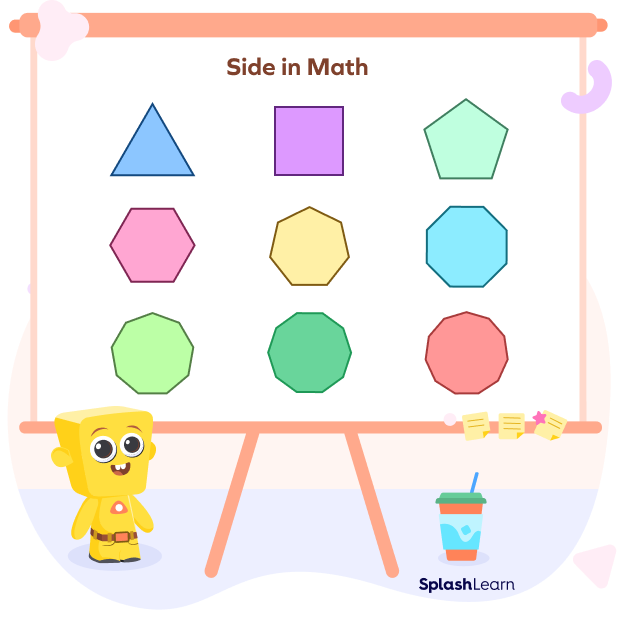
Imagine if we did not have any lines to connect points. There would be no shapes! Lines and points make up all the flat shapes we see, like squares, rectangles, and triangles.
When we talk about a side, we use it to describe the different faces of an object, like the side of a coin or the side of a page.
We also use “side” as a way to describe where something is located with respect to another thing.
For example, “the store is on the left side of the street”. However, side in math, has a different meaning.
Side in math means the line that forms a part of a flat shape. Let’s understand this better in terms of geometry.
Recommended Games
Side Definition in Math?
Side in math is an aspect of a geometrical shape. The shapes that we see are made up of lines (line segments) and points (vertices). These line segments join each other at vertices to form a shape. These line segments are called sides.
The definition of a side in geometry is the line segment that joins two vertices in a shape or two-dimensional figure.
In other words, a side in math is the line that connects two points of a shape. The shape here means a two-dimensional (flat) shape like a rectangle, a square, or a triangle.
Here, for instance, the rectangle has four sides.
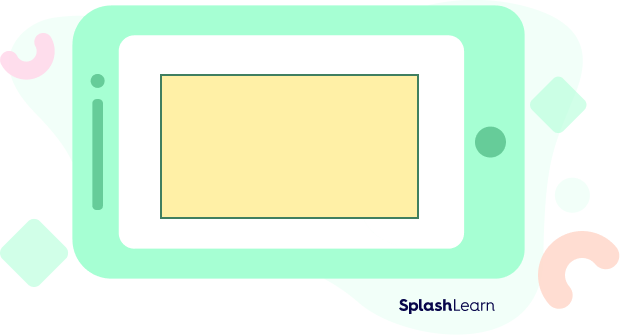
Sides in 2-D Shapes
A polygon is a closed shape that is made up of three or more line segments. These shapes are usually named according to how many sides they have. For example, a triangle has 3 sides, a quadrilateral has 4 sides, and a pentagon has 5 sides.
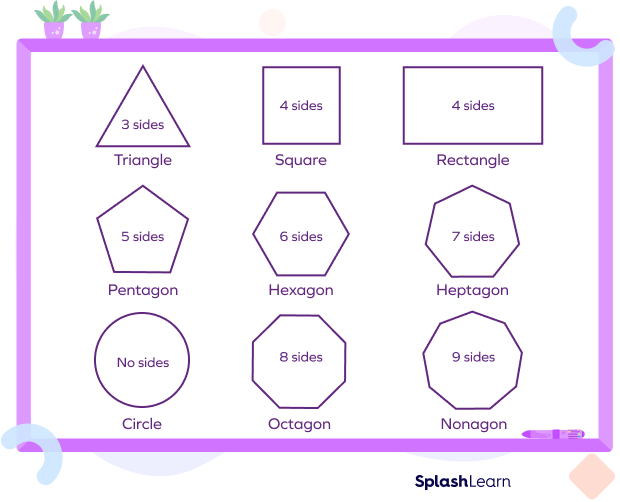
If all the sides of a polygon are equal, it is called a regular polygon.
For example, an equilateral triangle has three equal sides, a square has four equal sides, and a regular hexagon has six equal sides. These shapes are some examples of regular polygons.
Recommended Worksheets
Let’s Sing!
All two-dimensional shapes have a side.
Some have three and some have five.
You can name them all by their sides!
Let’s Do It!
Show your child pictures of different two-dimensional shapes. Ask them to count the number of sides they have and tell them their names. You can further explain how these shapes have been named based on the number of sides they have.
Solved Examples
Example 1: How many sides does a triangle have?
Solution: A triangle has three sides.
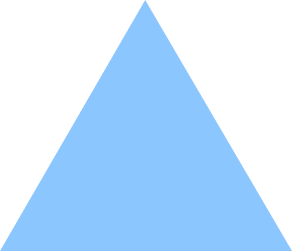
Example 2: If a polygon has 5 sides, what is it called?
Solution. A polygon with 5 sides is called a pentagon.
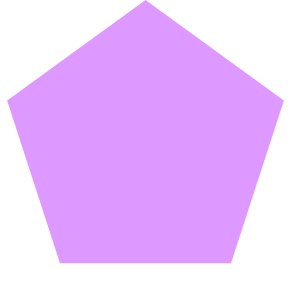
Example 3: Is a square a polygon?
Solution: Yes, a square is a polygon because it is a closed shape with 4 sides. A polygon is a closed shape with three or more sides.

Example 4: Is a rectangle a quadrilateral?
Solution: Yes, a rectangle is a quadrilateral because it is a closed shape with four sides. A closed shape with four sides is a polygon known as a quadrilateral.

Practice Problems
Side - Definition With Examples
A closed shape has 5 line segments connected at its vertices. What is it called?
5 lines connected at its vertices means that the shape has 5 sides. A closed shape with 5 sides is called a pentagon.
A polygon has four sides. Which of the following shapes is it?
It is a rectangle because a rectangle is a quadrilateral. A polygon with four sides is called a quadrilateral, which can be a square, a rectangle, or another closed shape with four sides.
If a closed shape has three or more sides, what is it called?
A polygon is a closed shape that has three or more sides.
Two-dimensional shapes are made up of line segments joined at points. What are the line segments called?
Sides are the line segments that join at vertices to make up two-dimensional shapes.
A polygon has three line segments that join each other at three points. What is it called?
A triangle is a polygon with three sides.
Frequently Asked Questions
Can an open shape have sides?
Yes, the line segments of an open shape are also called sides. Both open and closed shapes have sides.
What are the sides of a three-dimensional figure called?
The sides of a three-dimensional figure are called edges in geometry.
Does a circle have sides?
A circle does not have sides because it has no line segments or points. A side is a line segment that connects to another line segment at a certain point.


























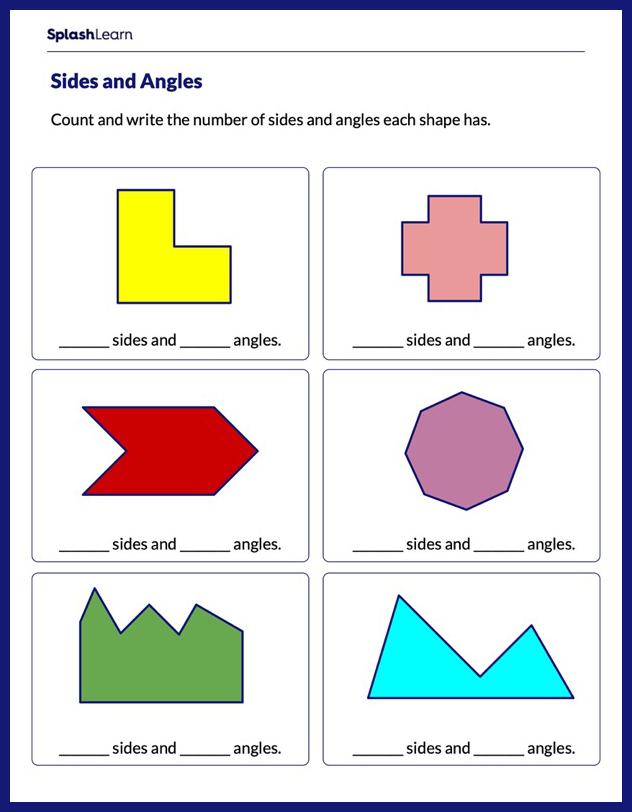


 Related math vocabulary
Related math vocabulary